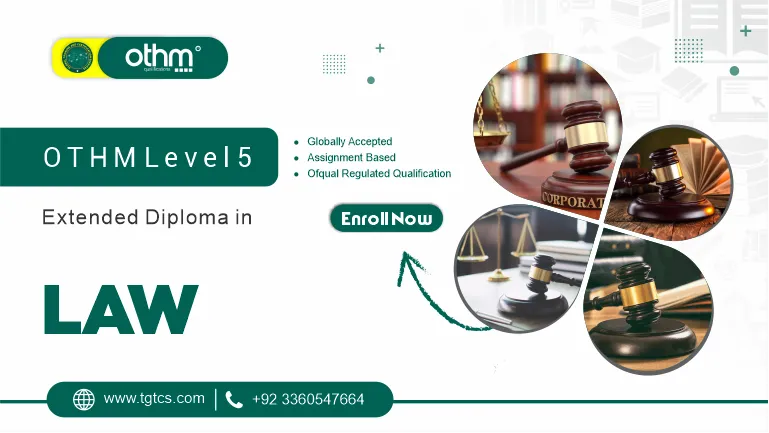ICTQual Level 4 Diploma in Biotechnology Engineering 120 Credits – One Year
In today’s fast-paced world, biotechnology is transforming industries and shaping the future of health, agriculture, and environmental sustainability. If you’re looking to advance your career in this dynamic field, the ICTQual Level 4 Diploma in Biotechnology Engineering offers the essential knowledge and hands-on experience needed to succeed. This comprehensive one-year program, which awards 120 credits, equips you with the skills required to work in various biotechnology sectors.
The ICTQual Level 4 Diploma in Biotechnology Engineering is an advanced qualification that provides students with a solid understanding of biotechnology engineering principles, tools, and techniques. This course covers essential topics such as bio processing, genetic engineering, bioinformatics, and industrial applications, preparing students for a rewarding career in biotechnology.
Biotechnology is one of the most exciting and rapidly evolving industries today. Whether it’s developing life-saving treatments, improving food security, or solving environmental challenges, biotechnology is at the forefront of technological advancements. By choosing to study biotechnology engineering, you’ll be part of an industry that is shaping the future of human health, sustainability, and innovation.
The ICTQual Level 4 Diploma in Biotechnology Engineering offers a comprehensive, hands-on education that prepares you for a successful career in biotechnology. Whether you’re interested in genetic engineering, bio processing, or biotechnology in agriculture, this diploma gives you the foundation to pursue a wide range of exciting opportunities in the field.
The Global Training and Certification Services (TGTCS) is Directly Approved Training Centre of ICTQual
The ICTQual Level 4 Diploma in Biotechnology Engineering is a comprehensive one-year program designed to provide students with the essential knowledge and practical skills required to excel in the biotechnology field. This 120-credit course covers a broad range of topics, including bioprocessing, genetic engineering, bioinformatics, and biotechnology applications in medicine, agriculture, and environmental sustainability.
Throughout the program, students will gain hands-on experience in laboratory techniques and develop a strong understanding of advanced biotechnology concepts such as CRISPR gene editing, fermentation technology, and the role of biotechnology in addressing global challenges. The course prepares graduates for diverse career opportunities in biotechnology, including roles in pharmaceuticals, agriculture, environmental science, food production, and medical research.
With a focus on industry-relevant skills and cutting-edge technologies, the ICTQual Level 4 Diploma in Biotechnology Engineering offers an ideal pathway for individuals looking to enter the rapidly growing biotechnology sector or pursue further education in specialized fields.
Mandatory Units
The Units of Level 4 Diploma in Biotechnology Engineering 120 Credits – One Year are as ;
- Introduction to Biotechnology
- Bioprocess Engineering Fundamentals
- Cell Biology and Genetics
- Microbial Biotechnology
- Biochemical Engineering
- Laboratory Techniques in Biotechnology
- Bioinformatics and Computational Biology
- Genetic Engineering and Biotechnology Applications
- Bioengineering Principles
- Environmental Biotechnology
- Industrial Biotechnology
- Project Management in Biotechnology
Below are the learning outcomes for each study unit in the ICTQual Level 4 Diploma in Biotechnology Engineering program:
- Introduction to Biotechnology
- Understand the history and evolution of biotechnology and its transformative impact on industries.
- Identify the key sectors where biotechnology plays a pivotal role, such as healthcare, agriculture, and environmental sustainability.
- Recognize current trends, challenges, and ethical issues in biotechnology.
- Bioprocess Engineering Fundamentals
- Apply bioprocess engineering principles to design and optimize biotechnology processes.
- Comprehend the operation of bioreactors and process control systems in biotechnology.
- Develop the skills to scale up laboratory biotechnological processes to industrial applications.
- Cell Biology and Genetics
- Gain a comprehensive understanding of cellular structures, functions, and genetic material.
- Understand genetic inheritance, gene expression, and the molecular foundations of genetic modification.
- Explore the role of genetic engineering techniques in biotechnology applications.
- Microbial Biotechnology
- Appreciate the significance of microorganisms in biotechnology, especially in fermentation and production processes.
- Develop practical skills in isolating, culturing, and manipulating microorganisms for biotechnology purposes.
- Examine the role of microbial biotechnology in industries like medicine, agriculture, and food production.
- Biochemical Engineering
- Apply knowledge of metabolic pathways, enzyme kinetics, and biochemical processes in biotechnology.
- Design and optimize processes for producing bio-based products like biofuels and pharmaceuticals.
- Understand how biochemical engineering addresses global challenges like energy sustainability and healthcare.
- Laboratory Techniques in Biotechnology
- Master essential laboratory techniques, including sterile practices, cell culture, DNA analysis, and protein extraction.
- Conduct experiments and analyze results in a lab setting.
- Follow safety protocols and demonstrate competency in using laboratory equipment and recording data.
- Bioinformatics and Computational Biology
- Grasp key concepts and tools in bioinformatics, including sequence analysis and data mining.
- Apply bioinformatics techniques to interpret biological data and solve biotechnology-related problems.
- Use computational models to simulate biological processes and systems.
- Genetic Engineering and Biotechnology Applications
- Learn the principles and techniques of genetic engineering, including recombinant DNA technology and CRISPR.
- Understand the practical applications of genetic engineering in medicine, agriculture, and environmental biotechnology.
- Assess the ethical, social, and regulatory aspects of genetic modification.
- Bioengineering Principles
- Apply bioengineering principles to design and develop biocompatible materials and devices.
- Study the integration of biomaterials, bioelectronics, and tissue engineering in biotechnology applications.
- Analyze challenges and advancements in bioengineering, especially in medical applications like prosthetics and implants.
- Environmental Biotechnology
- Learn how biotechnology can contribute to environmental sustainability through bioremediation and waste management.
- Examine how biotechnology can address environmental challenges, such as pollution control and resource management.
- Develop skills to apply biotechnological solutions to improve environmental health and reduce ecological impact.
- Industrial Biotechnology
- Understand industrial biotechnology applications, including the production of biofuels, enzymes, and biochemicals.
- Evaluate the economic, regulatory, and environmental factors influencing industrial biotechnology processes.
- Propose solutions to optimize industrial biotechnological processes for efficiency and sustainability.
- Project Management in Biotechnology
- Grasp the core principles of project management, including planning, execution, and evaluation of biotechnology projects.
- Manage biotechnology research and development projects, focusing on budgeting, scheduling, and risk management.
- Use project management techniques to lead biotechnology teams and initiatives successfully.
The ICTQual Level 4 Diploma in Biotechnology Engineering offers numerous benefits for students looking to advance their career in the rapidly growing biotechnology sector. Below are the key benefits of completing this course:
1. Comprehensive Knowledge in Biotechnology
- Gain a deep understanding of core biotechnology principles, including bioprocess engineering, genetic engineering, bioinformatics, and microbial biotechnology. This knowledge is crucial for a career in biotechnology and related industries.
2. Hands-on Laboratory Experience
- Develop practical laboratory skills in essential techniques such as cell culture, DNA analysis, protein extraction, and bioreactor operation. These hands-on experiences are vital for real-world applications in biotechnology research and development.
3. Specialization in Emerging Biotechnologies
- The course covers specialized areas such as environmental biotechnology, bioengineering, and industrial biotechnology, enabling students to explore and work in cutting-edge fields like bioremediation, sustainable energy, and advanced medical technologies.
4. Strong Foundation for Advanced Studies
- Upon completing the diploma, students are well-prepared for further study in advanced biotechnology fields or related disciplines, such as genetic engineering, bioinformatics, and pharmaceutical sciences.
5. Industry-Relevant Skills
- Develop critical skills such as project management, teamwork, and problem-solving, which are highly valued by employers in the biotechnology, pharmaceutical, and environmental sectors. This ensures graduates are ready to meet the demands of the industry.
6. Career Opportunities in Biotechnology
- Graduates of the course are equipped to pursue a wide range of career paths in biotechnology, including roles in research and development, bioprocessing, pharmaceutical production, agricultural biotechnology, and environmental solutions.
7. Ethical and Regulatory Understanding
- The program emphasizes the ethical and regulatory issues surrounding biotechnology, preparing students to navigate the complex landscape of biotechnology applications, such as genetic modification, environmental impact, and public policy.
8. Global Career Potential
- Biotechnology is a rapidly expanding global industry. With the skills gained from the course, graduates can pursue international opportunities in countries where biotechnology is advancing, including roles in research, development, and commercialization of biotechnology innovations.
9. Pathway to Specialized Certifications
- The diploma provides a foundation for students to pursue industry-recognized certifications, enhancing their credentials and career prospects. Certifications in areas like genetic engineering, bioinformatics, or bioengineering can further enhance employability.
10. Contribution to Global Challenges
- The course prepares graduates to work on solving global challenges in healthcare, agriculture, and the environment. Students gain the tools to innovate and create solutions that positively impact society, such as new medical treatments, sustainable agricultural practices, and environmental restoration techniques.
11. Versatile Career Paths
- The diploma opens up various career paths, including research, project management, consultancy, and entrepreneurship, giving graduates the flexibility to choose from a variety of roles across diverse sectors within the biotechnology and life sciences industries.
The ICTQual Level 4 Diploma in Biotechnology Engineering is ideal for individuals who are passionate about science, technology, and innovation, and who wish to pursue a career in the rapidly growing biotechnology sector. The ideal learner for this course would possess the following characteristics:
1. Strong Interest in Science and Technology
- The course is designed for individuals with a keen interest in biotechnology, biology, chemistry, and engineering. A passion for understanding how biological systems can be applied to solve real-world problems is essential for success in this field.
2. Background in Science or Engineering
- While formal qualifications are not always required, an academic background in science (such as biology, chemistry, or physics) or engineering can be advantageous. Students should have a solid understanding of scientific principles and concepts that form the foundation of biotechnology.
3. Analytical Thinkers
- Biotechnology engineering involves complex problem-solving, experimentation, and critical analysis. Ideal learners should be able to think analytically, solve problems creatively, and work with data to design solutions and innovations.
4. Strong Laboratory and Practical Skills
- The course requires practical skills in laboratory settings, such as performing experiments, handling equipment, and analyzing results. A learner who enjoys hands-on work, is meticulous, and adheres to safety protocols would thrive in this environment.
5. Desire for a Career in Biotechnology
- This course is perfect for individuals aiming for a career in biotechnology research and development, pharmaceuticals, environmental biotechnology, or industrial applications. The ideal learner has a clear career goal in these fields and is motivated to gain the expertise needed to succeed.
6. Willingness to Learn and Stay Updated
- Biotechnology is a rapidly evolving field, and the ideal learner should be committed to continuous learning. They must be open to exploring new trends, technologies, and ethical considerations in the ever-changing landscape of biotechnology.
7. Collaborative and Team-Oriented
- Biotechnology projects often require collaboration with multidisciplinary teams. An ideal learner should be comfortable working in teams, contributing ideas, and sharing knowledge to achieve common goals in research and development.
8. Ethical Awareness
- Given the ethical challenges in biotechnology, such as genetic modification and environmental sustainability, the ideal learner should be thoughtful, ethical, and able to engage in discussions about the social and regulatory implications of biotechnological advancements.
9. Attention to Detail and Precision
- Biotechnology engineering involves working with complex processes and systems where attention to detail is crucial. The ideal learner must be precise, careful, and thorough when carrying out experiments or designing biotechnological solutions.
10. Ambitious and Motivated
- The ideal learner is ambitious, motivated to excel, and eager to make an impact in the biotechnology field. They should be driven by a desire to innovate and contribute to solutions for global challenges such as healthcare, agriculture, and environmental sustainability.
This course is perfect for those looking to build a solid foundation in biotechnology engineering and pursue a rewarding career at the forefront of technological and scientific advancements.
Progression Routes
The ICTQual Level 4 Diploma in Biotechnology Engineering provides a solid foundation for students to advance their education and careers in the biotechnology and engineering sectors. Upon completing this one-year program, graduates have multiple pathways to enhance their professional skills, pursue further studies, or enter the workforce.
1. Advanced Diplomas and Degree Programs in Biotechnology or Engineering
Graduates of the Level 4 Diploma can pursue higher qualifications, such as:
- ICTQual Level 5 Diploma in Biotechnology Engineering – This advanced diploma allows students to gain deeper knowledge of complex biotechnological processes and engineering applications, preparing them for senior roles in the industry.
2. Specialized Certifications and Professional Development
Graduates may also opt for certifications in specific areas of biotechnology to enhance their expertise:
- Genetic Engineering and Gene Editing Certifications – For those interested in specializing in cutting-edge technologies like CRISPR and gene therapy.
- Laboratory Technician Certifications – Ideal for graduates wishing to pursue roles in research and clinical laboratories.
- Project Management Certifications (e.g., PMP) – For students aiming for managerial roles in the biotechnology sector.
3. Career Advancements in Biotechnology and Engineering
Graduates can pursue a range of entry-level and mid-level roles across the biotechnology, bioengineering, and healthcare industries, including:
- Biotechnology Engineer
- Bioprocessing Specialist
- Research and Development Scientist
- Lab Technician
- Quality Control Officer
- Environmental Biotechnology Consultant
These positions allow graduates to apply their knowledge in real-world applications, contributing to the advancement of biotechnological innovations.
4. Research and Development Roles
Graduates with a keen interest in research can explore R&D opportunities within academic institutions, research organizations, or biotechnology companies. Their training in biotechnology engineering positions them for roles focused on developing new solutions and products in fields such as genetic engineering, bioprocessing, and environmental sustainability.
5. Entrepreneurship and Startups
For those with entrepreneurial ambitions, the biotechnology sector offers abundant opportunities for innovation. Graduates may choose to start their own biotech-related businesses or join biotechnology startups. The skills gained through the Level 4 Diploma provide a strong foundation for launching and growing a business in this rapidly evolving field.
6. Industry-Specific Roles
Graduates can apply their skills in a variety of industries, such as:
- Pharmaceutical Biotechnology
- Food and Beverage Biotechnology
- Environmental and Renewable Energy Biotechnology
The versatility of biotechnology ensures that graduates have a wide array of career paths to explore, addressing global challenges across different sectors.
7. International Career Opportunities
With the ICTQual Level 4 Diploma being internationally recognized, graduates are well-positioned to pursue job opportunities and further education abroad. Biotechnology professionals are in high demand globally, particularly in countries with strong biotech industries such as the United States, Germany, and Singapore.
The ICTQual Level 4 Diploma in Biotechnology Engineering offers numerous opportunities for graduates to advance their careers, specialize in niche areas, or further their academic qualifications. With the biotechnology sector continuing to expand, the prospects for diploma holders are both diverse and exciting.
Course Overview
Course Level
Level 4
Course Units
12 Mandatory Units
Duration
one year






